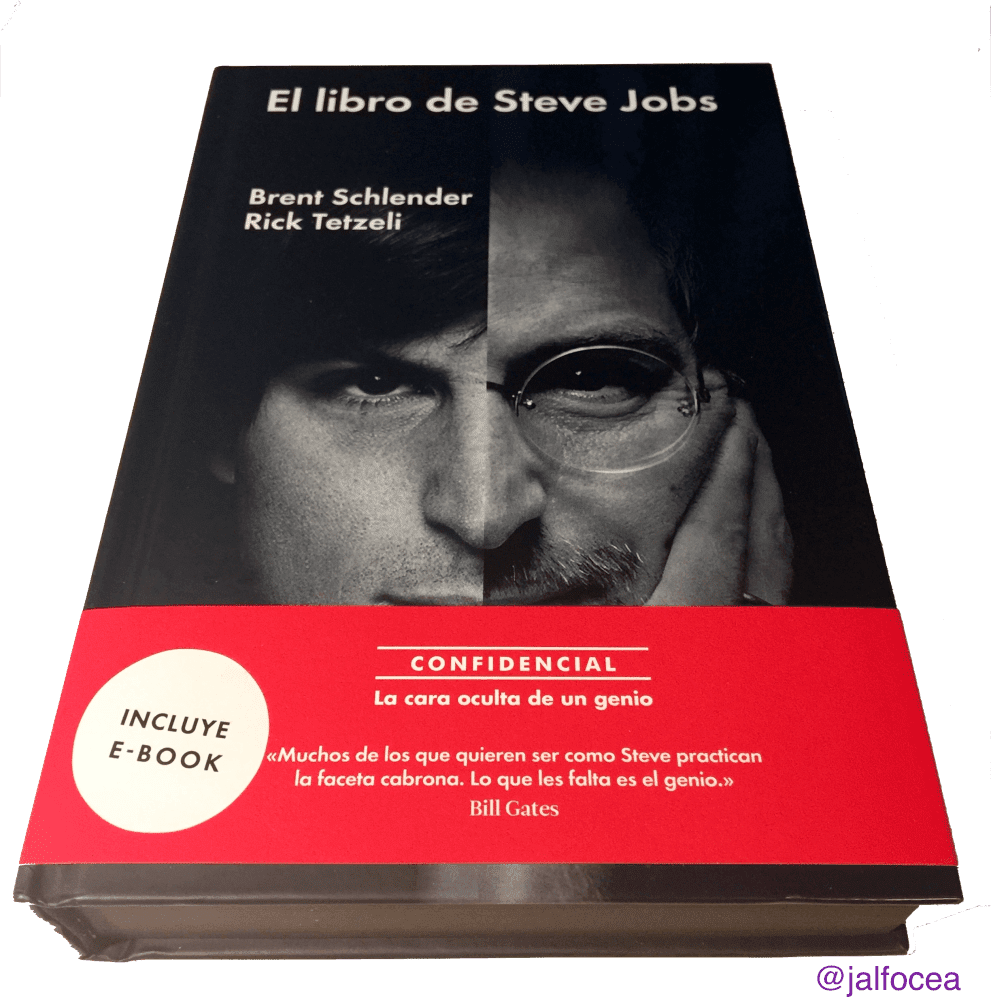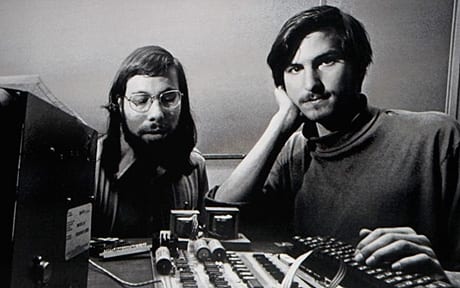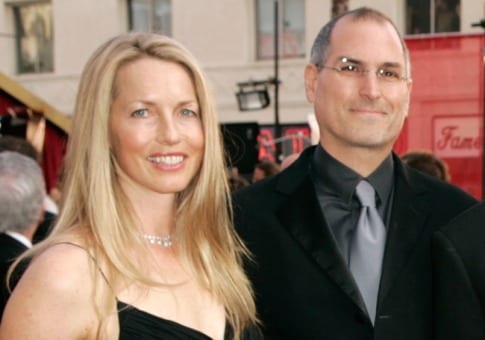In the same way that History and life itself show us daily that nothing is absolutely black and nothing is totally white, and that the nuances in between are a source of wealth and discovery, "The Steve Jobs Book" comes to put the cards on the table and admit once and for all that the founder of Pixar, NeXT and Apple was not only the visionary genius that many draw, but also not exclusively the egocentric ogre that so many others strive to make us see.
Steve Jobs, as loved as hated
I have no doubt that Steve Jobs had many books at his fingertips throughout his life, but this is not one of those books that the years passed on the shelf, this is the "The Steve Jobs Book", the book of his life and his visions come true, the first work that since his lamented and mourned disappearance addresses with full objectivity and without any complexes who Steve Jobs really was. A hard, complicated story, sometimes even cruel, but certainly also surprising and stimulating.
But if the study of history teaches us something, it is that it would be foolish to try to understand "The Steve Jobs Book" without first knowing those who transform their lives into words.
Its authors
Brent Schlender and Rick Tetzeli are the authors of "The Steve Jobs Book", a work that the publishing house has brought us to Spain Misstep. The first is a journalist with a long professional career, always in contact with the protagonists of the so-called digital revolution; after ten years in The Wall Street Journal, was incorporated as 
editor to the ranks of Fortune, currently being the editor-in-chief, something that he combines with his skills as a saxophonist in different jazz and blues groups.
For his part, Rick Tetzeli, who has been deputy editor of the magazine Fortune, is considered one of the greatest American experts in technological-financial matters.
Both have built "The Steve Jobs Book" from scratch, far from the opportunistic zeal that many saw in the moments before and immediately after the death of this visionary. A joint effort for which they have needed three years of research and interviews to give birth to this work, the result of information and reflection. But perhaps the most interesting aspect is the deep knowledge that Brent Schlender has of the figure of Jobs fruit of 25 years of mutual treatment.
This is how it is born "The Steve Jobs Book", a biography that is much more than a biography and that, without detracting from other interesting similar works, gives off a seldom seen rigor in each of its pages, inviting us to continue reading, reading, and reading.
The metamorphosis of a complicated genius
Brent Schlender states that “I can't remember a businessman who has changed (and progressed) as much as Steve. His negative qualities did not disappear, but he learned to master them ”. In these words is where we find the essence of "The Steve Jobs Book" whose pages make us privileged postmortem witnesses of the metamorphosis not of a character, but of a person.
The two "steves", Steve Jobs and Steve Wozniak, co-founders of Apple, did not see the company in the same way. For Jobs, Apple was "an extraordinary company that would humanize computing," and it would also do so through a "challenging non-hierarchical organization." This aspect, already present on the first page of this book, indicates that Jobs was an idealist not willing to give up his goals, however, future events would make him learn a lot. And change.

From "The Garden of Allah" to "Tell them I'm an idiot", Steve Jobs' experiences and stumbles made him change, but never give up his ideals
Each page of "The Steve Jobs Book" answers questions for which we still await an answer, or at least a clear answer.
Defenestrated and thrown out the back door of the company he had founded, Jobs did not give up. He founded NexT, and took over Pixar (although he had done it before), and it was during this intermediate stage of his life that he experienced his greatest transformation:
“At Pixar he discovered, albeit reluctantly and against his natural instincts, that sometimes it pays to give talented people the space they need”, but he also learned how to run a company because “Without the lessons that learned at Pixar, there wouldn't have been Apple's great second act, ”concludes Schlender.

Laurene Powell and Steve Jobs
"The Steve Jobs Book" it is full of testimonies that illustrate the veracity of the events that the reader is reliving. How he saw himself, how others saw him, statements that depict that metamorphosis of genius, conversations that outline his bad temper, even his cruelty on some occasions, but also his genius.
And of course, in its almost five hundred pages of History, not everything is business or technology, there is also a place for love. Chapter thirteen takes us to "Stanford" where Jobs met who would be the love of his life, Laurenne. She was studying at the Business School of this university and Jobs went there to give a lecture: "He was in the front row and I couldn't take my eyes off his face," Jobs said. I lost the thread and started to feel a little dizzy. " Something that Laurenne supports with her testimony: “The truth is, I have rarely seen him so nervous.
Laurene remained by his side until that fateful Tuesday, October 5, 2011, when cancer took the life of Steve Jobs. The last two decades, Apple was her creation, Laurenne the person she always wanted to be with:
“If you analyze what he spent most of his time on, you will see that he traveled very rarely and that he hardly ever attended conferences or those meetings that CEOs like to go to so much. I wanted to get home for dinner, ”says Tim Cook.
Steve Jobs He returned home to Apple almost a decade after being betrayed. The company had lost its way and bankruptcy was imminent. Saving the distances, Jobs was the Savior who came to resurrect her. So it was. Soon came the iMac, the iPod, iTunes and the company's greatest success, the iPhone, a gateway for thousands of people who practically still do not even know about Apple. And of course, the iPad.

Apple, with Jobs at the helm, set out on the path to becoming what it is today, the most valuable company in the world, loved and hated in equal measure, in the image and likeness of Steve himself.
During those years, Tim Cook became much more than a company executive. Jobs' right hand man, he replaced him on two occasions when cancer led to his sick leave. Steve Jobs had already chosen a successor, he wanted it to be someone on the inside, he could never again stumble upon something like a bubble water salesman, he wanted Tim Cook. So says Cook himself in "The Steve Jobs Book" How he got the news on Sunday, August 11, when Jobs phoned the current CEO and asked him to come see him:
"I want to talk to you about one thing," he told me. At that time, he didn't leave the house anymore, and when I asked him when he wanted me to come over, he said “now”, so I went there. He told me that he wanted me to be the new CEO of the company. When he said it it seemed to me that he believed that he was going to live much longer because we embarked on a long controversy over whether it made sense for me to be CEO and he to remain president. "What functions do you have now that you don't want to continue exercising?" I asked him.
It was a very interesting talk, ”Cook adds with a wistful smile. "You will make all the decisions," he told me. And I said to him: "Wait a bit, answer me a question before." You had to come up with something specific so I asked him: "Do you mean that if you present me an ad and I like it, I can approve it without your approval?" Steve laughed. "Well, I hope you at least ask my opinion!" He exclaimed. I asked him two or three times if he was sure of that decision because it seemed to me at the time that he had recovered a bit. I often stopped by his house during the week and the occasional weekend and every time I saw him it seemed to me that he was better. He, too, felt better. Unfortunately the reality was different.
Steve Jobs's trust in Tim Cook was complete; they were more than co-workers, they were friends, good friends: “Steve didn't want us [after his death] to ask ourselves: What would Steve do in my place?” and Steve knew that Cook would be the person who wouldn't ask himself that question. .
After the apparent improvement, Steve Jobs' health worsened within weeks. We already know the end.

"The Steve Jobs Book" It is a complete work illustrated with dozens of episodes, details, conversations and statements that allow us to believe what we are reading. If you allow me, a full-blown journalistic job.
There are many aspects that I have left in the inkwell, but it is not a question of revealing everything, rather of encouraging you to read it, since you live it with the same pleasure that I have done.